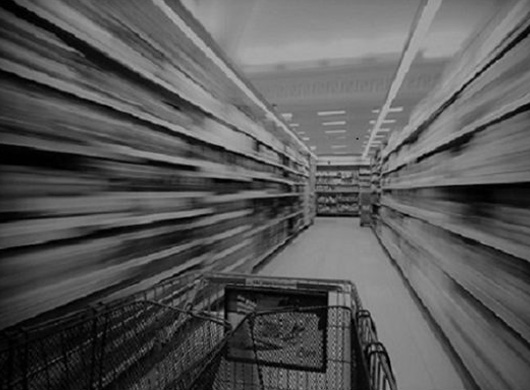
Growth of Private Label
Private labels continue their market growth up from what Nielson said was 18% to 30% in the last past five years, with projections the share will reach 35% of all food and grocery sales by 2020-21 *. Yet according to market research firm IBISWorld in Australia, the segment is still significantly under traded compared to other countries where the share of shelf is over 53% in Europe and 35 % in the United States.
The proposition is starting to get serious, with both Coles and Woolworths rebranding their offering. Transitioning from multiple brand identities to an aligned offer. What you do notice walking the supermarket is that there are several categories in which private label is yet to develop.
Both retailers and suppliers need to change what they’re doing for private label to be truly firing on all cylinders. In our view, there are three areas which will affect growth: consolidation, considered supply chain integration and improved collaboration. What this means is taking a long-term view rather than a short-term pricing strategy
Manufacturers need to begin by accepting that “private label” is not a dirty word and trying to create their own small brands might not be the answer – perhaps the better investment is improving efficiency in their value chain. By simplifying and rationalising the SKU ranges in key commodity areas on shelf, retailers can increase their own brands’ shelf presence, while driving a simplified portfolio of branded product alongside.
Consolidation
Perhaps the number of suppliers and brands is a reflection of the entrepreneurial spirit of Australia, a lack of trust in retailers and an immaturity in the private label market or just a lack of volume to make it work.
Whichever way you look at it, the Australian food sector is primed for consolidation. Family businesses, are moving into second- and third-generation ownership while there is a growing fondness for the sector from private equity and a need for scale to deliver efficiencies, particularly in the private label space.
The retailers’ biggest challenge is the complexity in the supply base. The UK success in private label is because of scale, streamlining both suppliers and retailers by reducing the number of relationships as well as optimising supply chains. It also builds strength in supply base, larger supplier are able to pack a bit more fire power when it comes to tough conversations, innovation and investment in efficiencies.
The UK market has a number of key players that dominate the private label sector: Bakkavor, Greencore and Northern Foods. These are all billion dollar businesses that carry very few brands and focus on driving the private label with retailers. It’s entirely possible that private equity or individual investors might try to build an Australian version.
Will anyone integrate the supply chain?
New entrants such as Amazon Fresh will put pressure on retailers as the landscape changes and the convenience sector grows. Integration all the way to manufacturing is therefore unlikely and not a good use of the balance sheet. Collaboration and investment across the sector will be needed to solve the distribution challenges that will exist.
Some categories that are traditionally private label heavy-weights, such as meals, fresh convenience, and small goods are under traded in Australia and need collaboration to grow. Where categories are underdeveloped it would be foolish for the retailers to not to invest to grow a category and these options could include direct investment in shares, joint ventures, or access to financial arrangements. However these are likely to be much smaller capital investments compared to an integration purchase.
Collaboration
We are programmed to find a reason to not like our neighbours – research has found we go out of our way not to talk to them! I get the feeling we perhaps take the same approach in our value chains. It is often easier and less hassle if we just meet once a year and agree a price, we can exchange disappointment in emails and an irate phone call that that is soon forgotten.
Private label wins over brands on price and known quality, but ultimately it wins on price alone by using the savings to re-invest in quality.
Collaboration is key to improving the quality and value proposition for consumers, taking the time to identify these opportunities let alone the complexities in navigating both businesses to implement changes means they often take a back seat.
We work in a sector where there is a history of difficult relationships; trust stops us from sharing important information, leading us back to our separate silos—and a guaranteed recipe for failed collaboration. Value chain collaboration needs to be more than a transaction or project, it should be a core value of each business involved.
With Pollen, we have developed a bespoke process for collaboration, the first stage is an end-to-end analysis of the value chain, identifying hotspots to focus on, we involve stakeholders across all levels in both businesses and challenge the way we do everything in both businesses.
What we have learned from our work is setting up sophisticated benefits sharing models on day one or for wholesale collaboration across the industry will not work. Developing principles, and having grown up conversation on the aligned objectives of the category is the right way forward to harness the significant opportunities that exist and need to be realised for the growth of private Label.
This article was first published in https://www.retailworldmagazine.com.au/emag/2017/RW-MAR-2017/